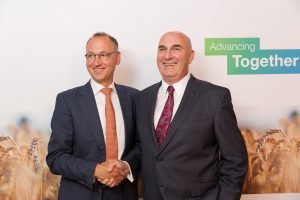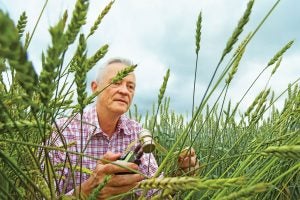The next generation in agricultural innovation is being created courtesy of Bayer’s more than $65 billion buyout of leading global seed-supplier Monsanto. The trajectory of biotechnology used in our farms’ fields is certain to be redefined because of the deal — high-tech seeds, crop chemicals, and related farm services are going to be researched and developed under a more singular guidance.
Bayer said that its Board of Management, its Supervisory Board, and Monsanto’s Board of Directors unanimously approved the agreement.
“We are pleased to announce the combination of our two great organizations. This represents a major step forward for our Crop Science business and reinforces Bayer’s leadership position as a global innovation driven Life Science company with leadership positions in its core segments, delivering substantial value to shareholders, our customers, employees and society at large,” Werner Baumann, CEO of Bayer AG, said in a news release.
After months of negotiations and offers that had been previously spurned by Monsanto, German-based Bayer finally found Monsanto’s sweet spot at $128 per share, representing a 44 percent premium for Monsanto shareholders. The acquisition combines the world’s largest supplier of seeds with a chemical company that enjoys a deep portfolio of agricultural products. The end goal, according to the companies, is to position farmers better to feed an ever-growing global population whose demands — and tastes — continue to adapt.
Combining Bayer and Monsanto would create the world’s biggest agricultural supplier and be a market leader not just in the U.S. but in Europe and Asia as well. Bayer said this deal would help to create seed and pesticide technologies that work better together, as well as enhancing digital agriculture, thus helping farmers improve their yields.

Courtesy of Bayer
Hurdles are still ahead for the two companies — the regulatory process is a complicated one. Many experts say that antitrust questions in the U.S. are high, and that could mean difficulties moving the deal forward. Farmers groups have also questioned how the marketplace will be affected and what kinds of changes in product costs might arise.
The concerns overall aren’t unique in an agricultural input sector that has seen recent high-profile consolidation efforts.
The DuPont/Dow Chemical merger announced in December is currently burdened by an inquiry from European Union officials who are questioning the antitrust impacts of such a partnership. The U.S. Justice Department, too, is being lobbied to step in on the American front. That merger isn’t likely to close until 2017, at which point DuPont and Dow can spin off an entity wholly focused on agriculture. A similar buyout announced earlier in 2016, in which Syngenta is being sold to ChemChina, continues to move forward in the regulatory process and is expected to be completed by the end of the year.
Missouri-based Monsanto has been among those coping with a downturn in the national farm economy in recent years, something that has hurt business and has contributed to many of the recent agricultural industry merger talks. While some job cuts had been planned at Monsanto going into 2017, it is not clear what kinds of changes to the workforce are now in store.
The combined agriculture business will have its global Seeds & Traits wing and North American commercial headquarters in St. Louis, Missouri, its global Crop Protection and overall Crop Science headquarters in Monheim, Germany, and an important presence in Durham, North Carolina, as well as many other locations throughout the U.S. and around the world. The Digital Farming activities for the combined business will be based in San Francisco, California.
“We are entering a new era in agriculture — one with significant challenges that demand new, sustainable solutions and technologies to enable growers to produce more with less. This combination with Bayer will deliver just that — an innovation engine that pairs Bayer’s crop protection portfolio with our world-class seeds and traits and digital agriculture tools to help growers overcome the obstacles of tomorrow. Together Monsanto and Bayer will build on our proud tradition and respective track records of innovation in the agriculture industry, delivering a more comprehensive and broader set of solutions to growers,” said Hugh Grant, Chairman and Chief Executive Officer of Monsanto.




